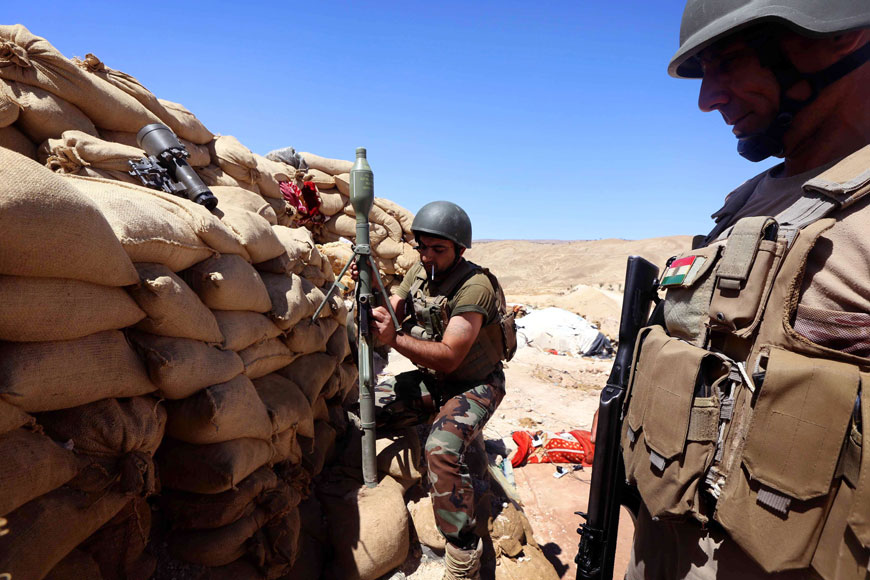BAGHDAD/BEIRUT — Iraq's former prime minister Nouri Al Maliki on Tuesday denounced as worthless a parliamentary report which blamed him and others for the fall of Mosul to the Daesh terror group last year and which called for them to be referred to the judiciary.
"There is no value to the results that came out of the parliamentary investigation committee," Maliki said on Facebook in his first public comments since the report was released on Sunday and referred to the public prosecutor on Monday.
Maliki, who has been in Iran since Friday according to his website, said political differences in the panel compromised its objectivity.
By seeking to provide accountability for the loss of majority Sunni Mosul, the report could help restore confidence in the Shiite-led government, especially among Sunni Muslims marginalised by Maliki's divisive politics.
It coincided with a campaign by Prime Minister Haider Al Abadi to reduce Iraq's patronage system, another move which could help rebuild a security apparatus riven with graft and mismanagement, but also risks further splits.
Abadi sacked a third of his Cabinet on Sunday. On Tuesday he ordered the positions of advisers hired as contractors in ministries to be eliminated and limited the number of advisers for himself, the president and the parliamentary speaker to five each.
The reforms follow weeks of street protests in Baghdad and southern cities demanding better government services and a call by leading Shiite Muslim cleric Grand Ayatollah Ali Al Sistani to “strike with an iron fist” against corruption.
They are the biggest move yet by Abadi to strengthen his hand, even as nearly a third of Iraq’s territory has fallen Daesh and the central government faces a financial crisis from the collapsing price of its oil exports.
Maliki blames Turkey, Kurds
The parliamentary report alleged that Maliki had an inaccurate picture of the threat to Mosul because he chose commanders, who engaged in corruption and failed to hold them accountable.
Maliki, who had previously accused unnamed countries, commanders and rival politicians of plotting the city’s fall, on Tuesday blamed Turkish and Iraqi Kurdish leaders.
“What happened in Mosul was a conspiracy planned in Ankara, then the conspiracy moved to Erbil,” he said in a second Facebook post, referring to the capitals of neighbouring Turkey and the Kurdistan Regional Government (KRG), a semi-autonomous region in northern Iraq whose forces have taken a leading role in battling Daesh.
The report criticised the Turkish consul in Nineveh, of which Mosul is the capital, for alleged links to Daesh, and Kurdish peshmerga fighters accused of confiscating weapons and ammunition abandoned by the military.
The consul was seized after Mosul’s fall but released three months later following negotiations.
Turkish officials from Prime Minister Ahmet Davutoglu down have repeatedly and categorically denied supporting radical Islamist groups including Daesh.
KRG Spokesman Safeen Dizayee said Erbil respected the panel’s findings and accused Maliki of trying to shift blame away from himself. The Kurds have said the president of Iraq’s Kurdistan region, Massoud Barzani, warned Baghdad that Mosul was in danger shortly before its fall but Maliki refused their assistance.
The army’s collapse in Mosul left the Baghdad government dependent on Shiite militias, many funded and assisted by neighbouring Iran, to defend the capital from the radical Islamist insurgents and recapture lost ground.
The militias’ participation in Baghdad’s ongoing efforts to retake western Anbar province — Iraq’s Sunni heartland — from Daesh could further inflame sectarian tensions there.
It was not clear whether or when Maliki would return from Iran, which supported him for much of his eight divisive years as premier, but backed Abadi last summer after the fall of Mosul, Iraq’s second city, exposed the weakness of the system left by the 2003-2011 US occupation.
Maliki’s vice president position was cancelled last week in the first wave of Abadi’s reforms. On Sunday, Abadi sacked a third of his cabinet, reducing the number of ministers to 22 by eliminating positions or combining some ministries with others.
Following the first meeting of the downsized cabinet, Abadi said the cuts were aimed at reducing flab but were not targeted at a specific bloc or person.
“It does not mean the people whose positions were cancelled are accused of corruption,” a statement from his office said.
Along with eliminating Iraq’s three vice president positions, Abadi has cut politicians’ security details and other perks, encouraged corruption investigations and given himself the power to fire provincial governors and regional officials.
